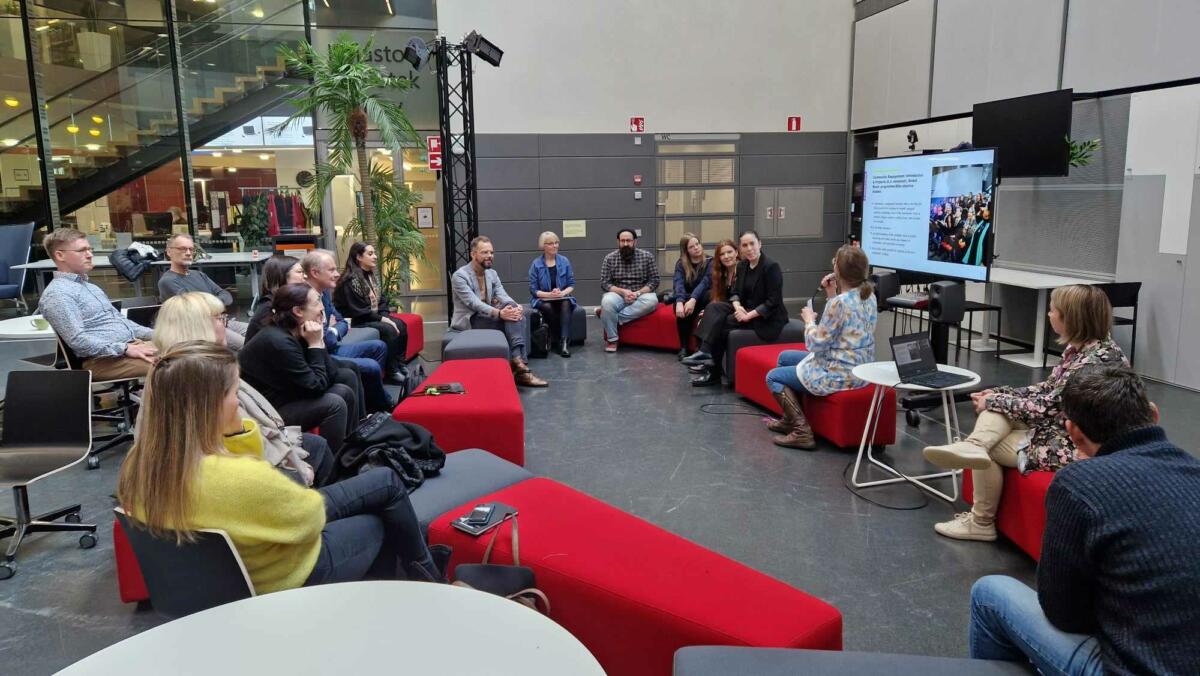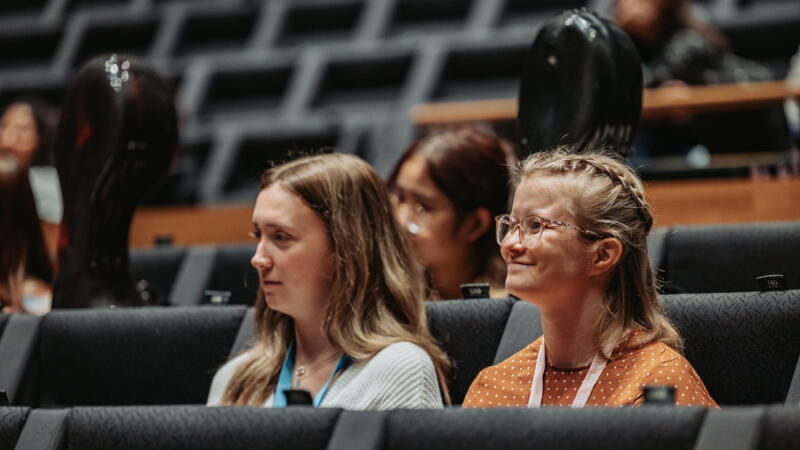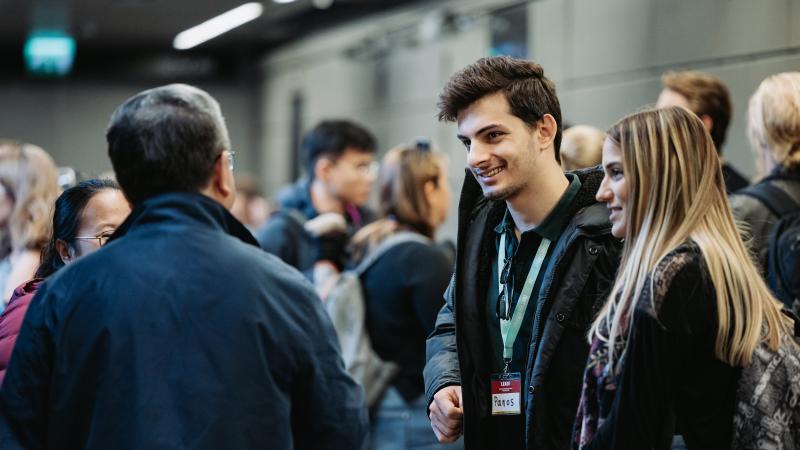Embracing collective learning: Management team of the European arts university alliance IN.TUNE visit Uniarts Helsinki
For Uniarts Helsinki, the visit served as a platform for exploring new avenues for collective institutional transformation and advancement in arts education and research across Europe.

Since the beginning of 2024, Uniarts Helsinki has been part of the first European universities alliance to be established in the field of music and arts over the next four years. IN.TUNE – Innovative Universities in Music and Arts in Europe consists of eight arts universities.
In late April, IN.TUNE Co-Secretary Generals Tone Jordhus from Norges musikkhogskole (Oslo) and Martin Prchal from Koninklijk Conservatorium Den Haag (The Hague) as well as Alliance Administrative manager Dušanka Jelenković Vidović from Norges musikkhogskole (Oslo) embarked on a visit to Uniarts Helsinki.
Uniarts Helsinki faculty, staff, students and university leadership engaged with the alliance managers, exchanging insights and exploring potential areas of synergy and cooperation. From roundtable discussions to campus tours, the visit encapsulated the spirit of partnership and mutual support that lies at the heart of the alliance’s mission.
A completely different animal
According to the management trio, the coming four years are about setting the alliance up and piloting different strategies as well as best practices on a small scale.
“This is a completely different animal than anything we have done before. We are still trying to understand how we are actually going to work together. It is not a project, it’s an alliance. We are really working for long-term, deep institutional cooperation,” said Martin Prchal.
“By collectively reinforcing principles and refining terminology, we are cultivating a robust culture of discussion and bolstering dialogue,” said Sibelius Academy dean Emilie Gardberg.
“This will not only benefit our institutions but also have an impact on organisations such as the AEC [European Association of Conservatoires].”
Music and art also wield significant power in shaping societal dynamics.
“In today’s evolving societies, systemic challenges are strikingly similar across borders. These multifaceted issues are so intricate that addressing them requires collaborative efforts with universities and partners who have tackled similar issues,” Uniarts Helsinki Rector Kaarlo Hildén said.
“Amidst the challenging political climate faced by many nations, there’s strength in unity, as we strive to collectively make a positive impact on the world.”
A process of giving and receiving
IN.TUNE positions its member institutions at the forefront of the latest advancements in European higher education. The European Union also aims to provide sustained support to the alliances beyond the initial four-year establishment phase.
“European higher education becomes more attractive, and in this way alliances play a pivotal role for the EU on a global scale,” said Prchal.
“We must remind ourselves of two things: First of all, we are creating unique opportunities for students and teachers, which would not exist without our collaboration. Second, this is a platform for learning and improving ourselves, as individual students and teachers, but also as institutions.”
“Each institution brings unique strengths to the table. By collaborating with partners, we not only strengthen our own university through shared knowledge but also contribute to the broader network. It’s a reciprocal process of giving and receiving,” said Kaarlo Hildén.
“There are great institutions in the network. As the alliance makes us focus our international collaboration to our alliance partners, we are now encouraging our teachers to go to certain places. Because what matters in the end, is that people in these institutions know each other,” said Tone Jordhus.
From music to collaborations between art forms
“We are not making an alliance that is something extra and separate from our daily life but completely embedded in everything we all do – education, research, policies and guidelines. IN.TUNE is about institutional transformation, not just international cooperation,” said Tone Jordhus.
For Sibelius Academy professor Juha Ojala leading the alliance’s research dimension work package, this means strengthening research networks and resulting collaboration opportunities.
“For example, our pool of supervisors can provide a practical arena for advancing matters in the alliance. This may not necessarily be reflected in statistics and public discourse, but it is everyday work.”
While the starting point for the alliance was music due to previous collaborations between the institutions, the work is extending to other disciplines. The Academy of Fine Arts has already activated cooperation with the arts university in The Hague, while the Theatre Academy is strengthening connections with Belgrade.
“We have inherent partners in Belgrade and Vienna. Belgrade is a geographically and culturally intriguing partner. With its Eastern European and Slavic cultural heritage, it’s both familiar and part of our Finnish cultural legacy. Moreover, it’s a school encompassing music, visual arts and performing arts – structurally resembling Uniarts Helsinki,” said Theatre Academy vice dean of education Ville Sandqvist.
IN.TUNE in short
IN.TUNE – Innovative Universities in Music and Arts in Europe is the first European Universities Alliance bringing together eight universities in the field of music and arts. It is committed to developing a joint long-term strategy with a strong artistic dimension for high quality education, research, innovation and service to society. IN.TUNE is funded by the European Commission for a four-year period in 2024-2027.
European Universities Alliances in short
European Universities Alliances is an initiative of the European Commission. Transnational alliances of higher education institutions develop long-term institutional structural and strategic cooperation in all four missions of higher education institutions: education, research, innovation and service to society.

